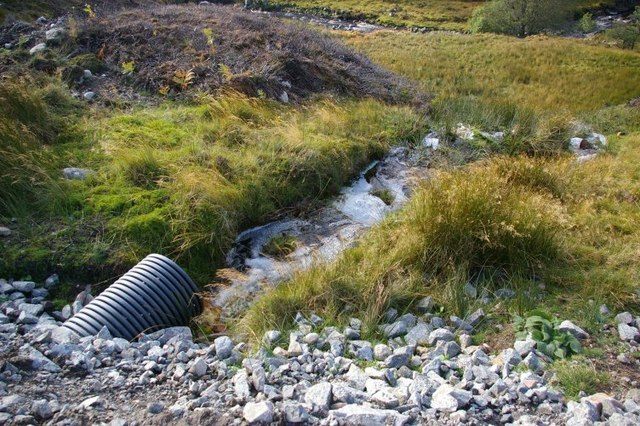
Serious pollution incidents caused by water companies have increased by 60% in just one year, according to the Environment Agency.
In 2024, there were a record 2,801 pollution incidents in England, compared with 2,174 in 2023. Of these, 75 were deemed to cause “serious or persistent” harm to fisheries, drinking water and human health – up from 47 the previous year.
The Public Accounts Committee – a cross-party group of MPs – described the level of pollution as “woeful” and accused regulators of being “missing in action” when it comes to holding the industry to account.
The Environment Agency’s figures come ahead of a landmark review of the water industry, due to be published on Monday.
Sir Jon Cunliffe, Chair of the Water Commission, will set out his recommendations for improving both the environmental and financial performance of the sector.
Several UK media outlets reported on Friday that Sir Jon’s review may recommend scrapping the regulator Ofwat entirely. A government spokesperson said: “We are not going to comment on speculation.”
But speaking on the pollution data, Steve Reed, the Environment Secretary said: “These figures are disgraceful and are a stark reminder of how years of underinvestment and weak regulation have led to record levels of sewage polluting our rivers.”
Industry body Water UK admitted that the performance of some companies had fallen short.
“The Environment Agency is right to highlight underinvestment in infrastructure and maintenance as the major causes of these results,” said a Water UK spokesperson.
The sector had been set a target to cut pollution incidents by 40% by 2025 compared with 2016 levels. However, this has been badly missed – incidents in 2024 were more than double the original Environment Agency target.
Each year, the Environment Agency records the number of times pollution – including untreated sewage – is discharged from water company sites, such as treatment works, into England’s waterways.
Just three companies were responsible for the vast majority of the most serious incidents: Thames Water (33), Southern Water (15) and Yorkshire Water (13).
“These figures expose a brutal truth. Serious pollution incidents are rising, sewage discharges remain rampant, and our rivers are spiralling toward ecological collapse. This is not just regulatory failure; it is a national disgrace,” said River Action CEO James Wallace.
“Thames Water, the most egregious polluter, should be put into special administration to start the reset,” he added.
Thames Water saw its serious pollution incidents double and was the worst performer for reporting pollution events to the regulator.
England operates a combined sewage system, meaning rainwater and sewage are processed through the same infrastructure. Higher rainfall last year may have overwhelmed parts of the system.
However, regardless of rainfall variations, discharges causing serious pollution breach company permits and legal obligations.
While many incidents are self-reported by the companies, Environment Agency inspections tell a different story: of 4,000 site visits last year, nearly a quarter were found to be in breach of permit conditions.
Sir Geoffrey Clifton-Brown, Chair of the Public Accounts Committee, strongly criticised the government and the Environment Agency for being “missing in action”.
“Regulators are overwhelmed by the number of prosecutions and appear unable to deter companies from acting unlawfully. Government must act now to strengthen regulators and support their efforts to hold companies to account,” he said.
The Committee said repeated pollution incidents were the result of the Environment Agency and Ofwat “fail[ing] to ensure water companies maintain vital infrastructure”.
At the current rate of replacement, it is estimated it would take water companies 700 years to renew the entire water mains network.
Water UK said the poor state of infrastructure was due to the regulator preventing companies from raising customer bills to fund necessary investment.
“Investment in the sector has been suppressed with Ofwat prioritising short -term cuts to people’s water bills over the long-term resilience of the network. This is finally being put right, with a record £104 billion investment over the next 5-years,” the industry body spokesperson said.
As a result of new investment, household water bills are expected to rise by an average of £123 per year – although for Southern Water customers this could be as much as £224.
However, Sir Geoffrey said that the lack of investment was ultimately the industry’s fault.
“I think over a number of years the water companies have been taking money out of the water system and channelling it away to their investors making their debts higher. Meaning, us, the customers are having a huge cost of that interest.
“Instead of paying that money towards improving capital investment, improving the capacity of sewage treatment plants or renewing leaky pipes,” he said.
On Monday, Sir Jon Cunliffe will publish his full recommendations on how the government could reverse the decline in the sector.
In preliminary findings last month, he echoed the Public Accounts Committee’s view that there are “deep-rooted, systemic and interlocking failures” in the industry – but reserved his strongest criticism for the regulators, including the Environment Agency, Defra and Ofwat, accusing them of failing to provide proper oversight.
“We really need a regulator that is close to companies, that oversees them and monitors them continuously, as we do in financial services with the banks – not just so they can intervene early… but so they can support companies to improve,” he said.
——————————————————————————
At Natural World Fund, we are passionate about restoring habitats in the UK to halt the decline in our wildlife.

